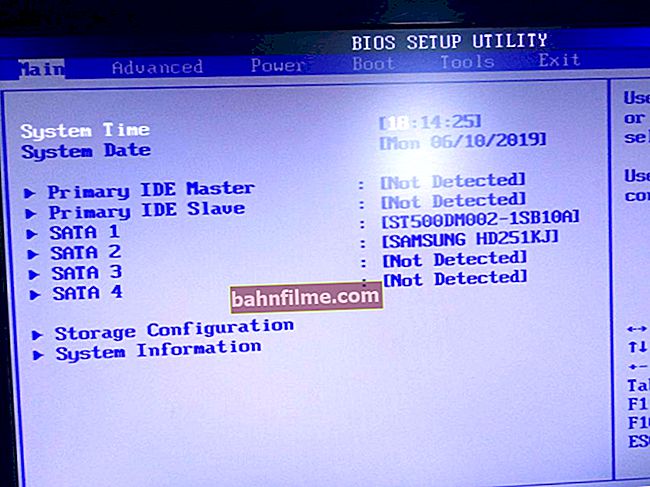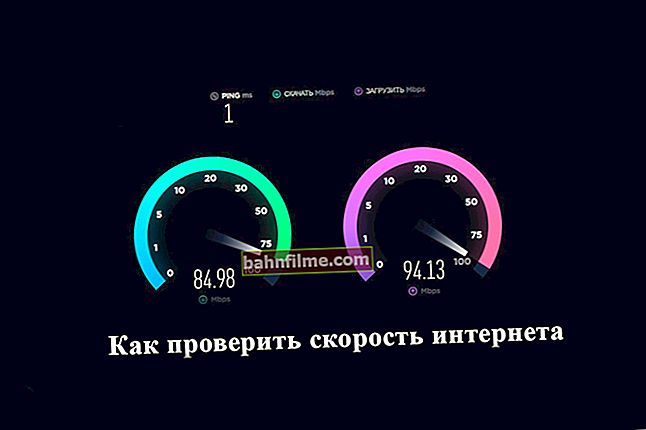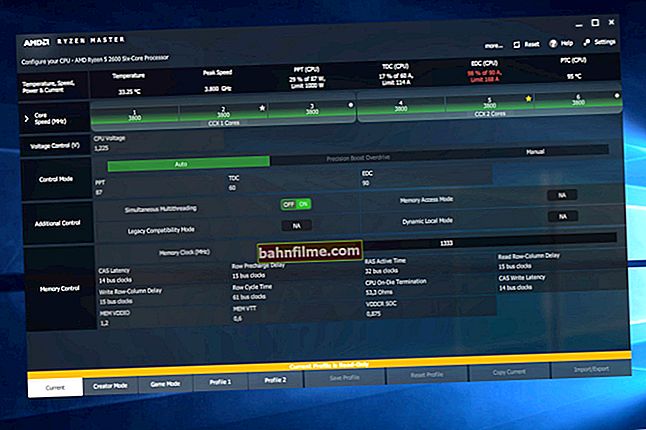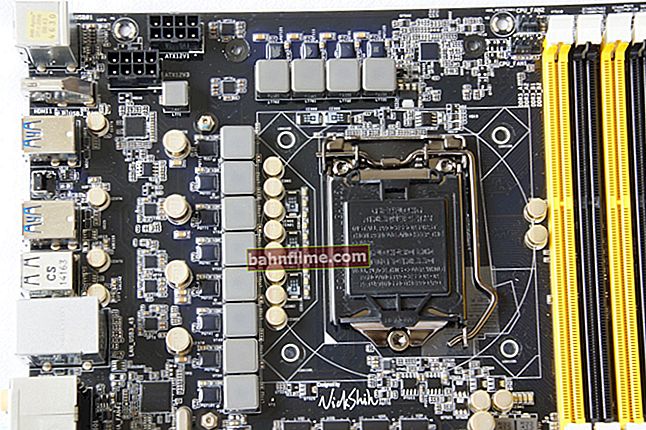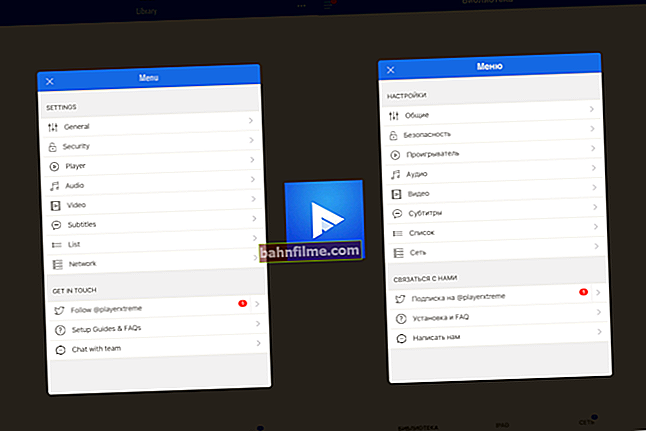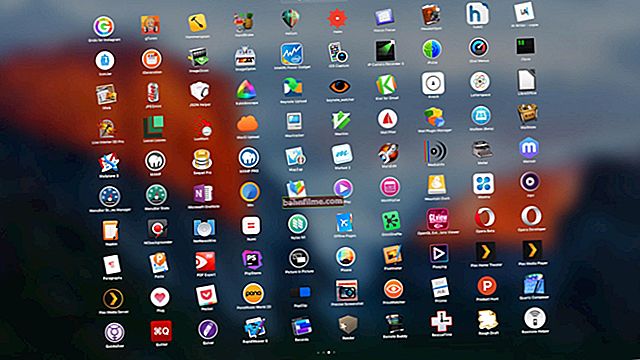
User question
Hello.
Tell me how you can find out how many 32 or 64 bits are in my version of Windows 7. When they installed my OS, they said 64 bits, but now I can not install the antivirus (I just downloaded the 64 bit version).
I tried to look in the properties of the computer, but there is no data at all: just ZverDVD - Windows. Are there still working methods?
Good day.
Apparently you have some kind of Windows assembly from various "craftsmen" (in general, I am an ardent opponent of all these assemblies, it is always better to work with a license 👌). I suspect that the problem with displaying properties is still not the biggest one you may encounter ...
In this article I will give several ways to help determine the bitness of your Windows (i.e. how many bits are 32 or 64).
Note: Usually 32 bit systems are marked - as x86, and 64 bit systems - like x64.
*
Determining the bitness of Windows (32 or 64 bit)
👉 Method number 1: system properties
The easiest way to determine is to look at the properties of the system. To do this, go to the Windows Control Panel at:
Control Panel \ System and Security \ System
In line "System type" - you will see the type of your OS (in this case, on the screen below 👇, the system is 64 bit, it is marked asx64) .

64 bit version of Windows
As far as I understand, the user who asked the question in this way could not find out the bitness of the OS, so I immediately turn to several more.
*
👉 Method number 2: through the command line
First you need to open the command line. Here is a universal method for all operating systems:
- press Win + R;
- in the window that appears, enter CMD and press the Enter button.

cmd - run command line
At the command prompt, enter the command systeminfo and press Enter.
After a moment, you will see a lot of information about your PC and Windows, including the type of system (see the screen below, 64 bits).

Viewing the system bitness at the command line
*
👉 Method number 3: through the special. utilities
Now there are quite a lot of various utilities for monitoring the state of a PC, OS, cleaning it, maintaining it, etc. In them you can often find out all the ins and outs about your Windows.
By the way, I have such an article on my blog, the link is below (I recommend it).
👍 To help!
Utilities for viewing PC characteristics - see my selection
One of the free and quite popular utilities for viewing computer characteristics is Speccy ... This is what I recommend to use - it contains most of the information about Windows, the temperature of the main PC components, information about the processor, video card, etc. (everything that can be useful to an ordinary user).
In particular, to find out how much bit your OS is - it is enough to start it when the program is loaded - the first line will answer you this question.

Speccy / 64 bit system
*
Features of x64, x32 systems, is it worth switching from a 32-bit system to 64?
Many people mistakenly believe that if the box says (or in the description) "64"- means the system is better by definition (nostalgia: I remembered the cartridges for Dendy, when they wrote" 999 games in one cartridge ", but in fact 5 ...).
Consider below are the main features (I will arrange them in the form of points, and everyone will decide for himself whether he should switch to another Windows OS).
- The most important difference (for an ordinary user, if you do not go into the "depth") - this is what x64 the system sees more 3 GB of RAM (32-bit - 3 GB maximum)! Those. logically follows: if you have 4 GB of RAM or more, it makes sense to switch to an x64 system - so that all the power of the PC is used and the speed of the system as a whole is increased;
- If you work with rare software (for example, which was written specifically for you, your company) - before switching to a new OS, check whether these programs will work.The same applies to antiviruses (fortunately, all manufacturers release their programs for different systems), virtual drives, archivers and a whole range of other programs;
- It makes sense to go on a 64-bit system, if you work with graphic editors such as Adobe Photoshop, Adobe Illustrator, etc. Various filters, loading images, etc. tasks are faster and more efficient (besides, the program can use the entire amount of RAM, 32 -bit version of Windows, for some reason, there is some kind of "artificial" limitation);
- If you squeeze something often archivers (especially large archives of several gigabytes) - x64 system will allow the archiver to compress / decompress files faster;
- It also makes sense to switch to x64 OS - if you use large office suites for editing a large number of documents (now I do not take into account ordinary text files);
- For accountants when working with 1C - it also makes sense to switch to x64 Windows, since 1C will use memory more efficiently, slow down less.
2020 update
In general, now almost all modern laptops and PCs come with at least 8 GB of RAM. Therefore, today, for most users, the choice is obvious ...
And yet, how quickly time passes. A few years ago, 3-4 GB of RAM was considered the very top, and now 16-32 GB does not surprise anyone ...
In other cases, chasing the number "64" (if you do not have 4 + GB of RAM) - there is no point at all. You will not get a significant advantage in performance (no matter how the opposite effect is ☝).
By the way, the first x64 Windows were not very stable, programs often crashed with errors, the OS went into "blue screens". Now, in general, you can forget about it and not talk ...
*
On this note, I conclude the article ...
Good luck to all!
👋
First publication: 02/14/2017
Correction: 01/05/2020
